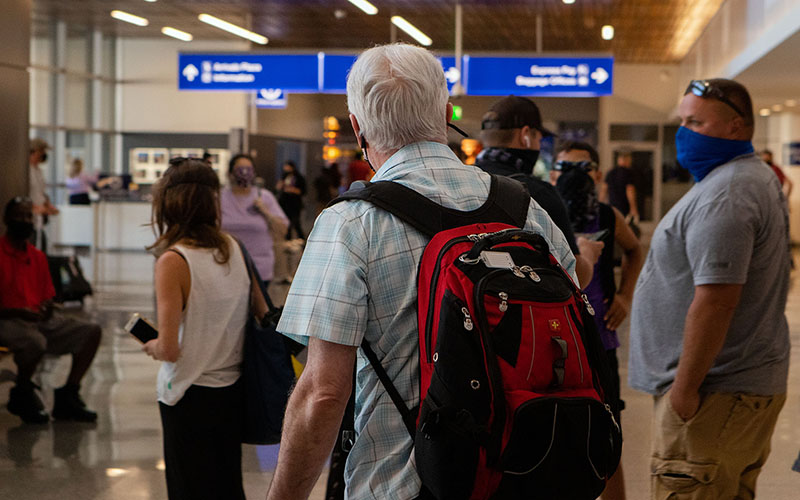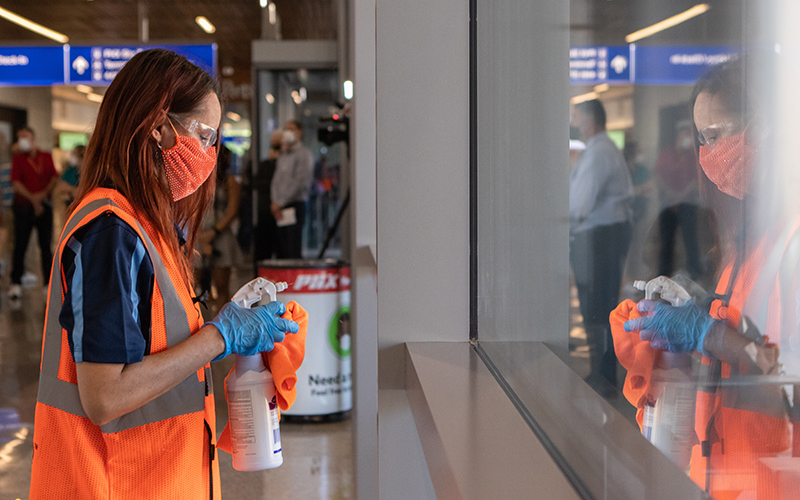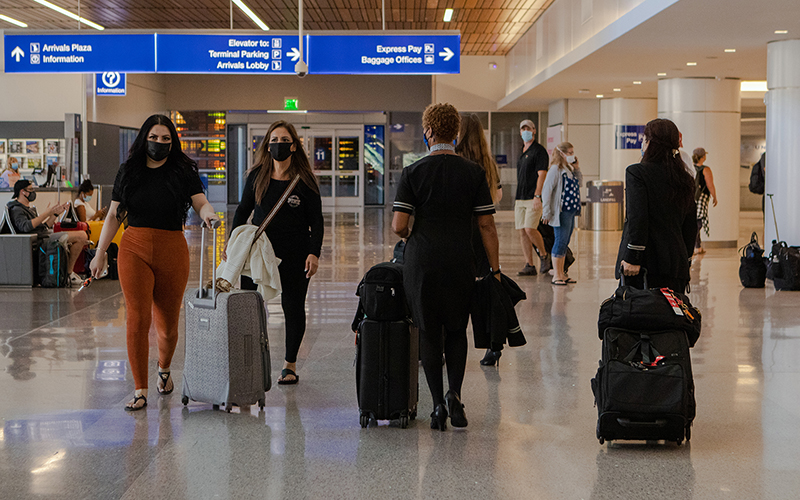WASHINGTON – With vaccination efforts in full force, airlines and airports are on their way to bouncing back from a year in which passenger traffic fell as much as 96% because of the pandemic, officials told a Senate panel Wednesday.
And that improvement has also been seen at Phoenix Sky Harbor International Airport, where “we were very, very excited to see numbers increase to about 70%” of pre-pandemic levels, said Charlene Reynolds, assistant aviation director of the Phoenix Department of Aviation.
“Here at Sky Harbor, we are currently seeing some revival of traffic,” Reynolds said in her testimony to the Senate Commerce subcommittee. “We looked at some of the projections from the rating agencies, they believe we will return to normalcy in 2024, however we’re very hopeful that passengers will return sooner than 2024.”
While they talked about gains, however, much of the hearing was dedicated to the question of health concerns associated with increased travel, and the need to keep enforcing COVID-19 safeguards.
“I look forward to hearing from our witnesses about how safe it is to fly, and what the future holds for air travel,” said Sen. Roger Wicker, R-Miss., who said recent guidance from the Centers for Disease Control and Prevention does not provide the clarity “needed to maintain public confidence.”

After a disastrous pandemic year, air travel has started to rebound at Phoenix Sky Harbor International Airport, as it has at airports across the country. But health experts warn that COVID-19 safeguards need to be observed to make sure infections don’t rise along with the number of travelers. (File photo by Allie Barton/Cronkite News)
“As our nation moves closer toward a full reopening, now is the time to take stock of the aviation industries position, and what can be done to ensure it is fully recovering,” Wicker said.
For Sara Nelson, international president of the Association of Flight Attendants, the most important action is keeping mitigation efforts in place. That means everything from making sure that people get vaccinated to keeping mask mandates for air travel in place – and for airlines, it also means extending a current ban on service of food and drinks on board.
“Every time that someone goes to take a drink or a bite, they’re removing that mask and putting others at risk,” said Nelson, who said airlines need to hold off on restoring in-flight food service.
She also implored lawmakers to extend a Transportation Security Administration mask mandate, which is currently set to expire May 11.
Leonard Marcus, co-director of the Aviation Public Health Initiative, agreed that health-safety protocols are still needed, but he said air travel can be safe if precautions are observed.
“The first report studying COVID-19 onboard aircraft showed that the multiple layers of ventilation, face masks, distancing on jet-bridges, disinfection and hygiene, when combined, lowered the risks of disease transmission,” said Marcus, whose organization studies the impact of aircraft and airport practices on public health.
In response to questioning from Sen. Ted Cruz, R-Texas, Marcus said he believes middle seats on flights could be filled “given the ventilation, given the wearing of masks, given the disinfection on planes, given individual and personal hygiene attention” on planes.
The slump in air travel has had an economic impact not just on airlines: Reynolds said Sky Harbor is the largest economic engine in the state of Arizona.
She said Sky Harbor saw a record 46 million passengers in 2019 and was on track to break that record again in 2020 before the COVID-19 pandemic hit.
“In the calendar year 2020, our total passenger numbers were down 53% as compared to 2019, and the airport’s non-aeronautical revenues declined by 36%,” Reynolds said.
Reynolds said the Aviation Department continues to take steps to help get back to normalcy while preserving public health, such as sanitizing facilities “with high-tech systems and increased custodial vigilance.”

Since the start of the COVID-19 pandemic, workers have stepped up cleaning and sanitizing of windows and surfaces at Sky Harbor. (File photo by Allie Barton/Cronkite News)
“The Aviation Department is working with local health officials to host events this month, offering free COVID-19 vaccination for the tens of thousands of essential employees working at our airport,” she said.
But she said federal funding will be needed for the gains to continue.
“As the nation emerges from the pandemic, additional money for terminal renovations would assist us in making modifications for increased physical distancing and deployment of touchless technology,” Reynolds said. “Renovations will also help us pay for upgrades, such as the installation of vertical circulation systems and electrostatic cleaning equipment.”
Sen. Kyrsten Sinema, D-Ariz., and chair of the Subcommittee on Aviation Safety, Operations and Innovation that was holding the hearing, said the government needs to support enforcement of health protocols for air travel.
“At a time when we are seeing increased infection numbers in certain parts of the country and abroad, we must not let up on mitigation efforts or place airline workers and their passengers at increased risk,” Sinema said. “Confidence that air travel is safe is critical to the full recovery of our aviation system and our economy.”


